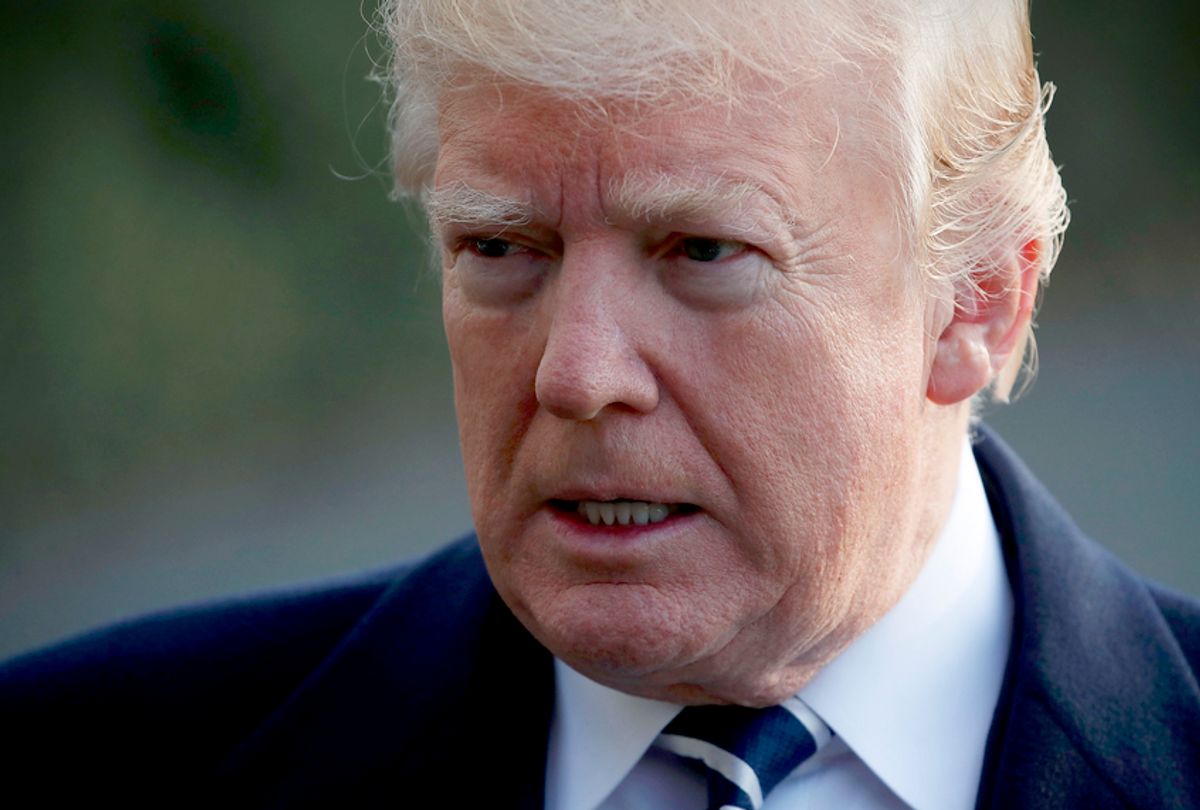The Trump administration, known for its crusade against illegal immigration, is now moving to restrict legal immigration, too.
The Department of Homeland Security is considering a process that would take into account whether legal immigrants or their American-born children rely on certain public benefits. DHS has already drafted new rules, according to Reuters, "that would allow immigration officers to scrutinize a potential immigrant’s use of certain taxpayer-funded public benefits to determine if they could become a public burden." Under the proposed new rules, legal immigrants could be ordered deported for using a wide variety of benefits. Some of these benefits outlined in the new rules are government pre-school programs like Head Start, food assistance programs, or subsidies for health insurance premiums or utility bills.
Since 1999, authorities were barred from weighing non-cash benefits when determining an immigrant's eligibility to come to the United States or stay here, but the proposed rules seek to abandon those measures. And while immigration law already requires the exclusion of someone from permanent residence in the U.S. if they are likely to become a "public charge," since 1999 a "public charge" is attributed to someone "primarily dependent on the government for subsistence." This means direct cash assistance or long-term government-funded care, not non-cash benefits like public education.
"Non-citizens who receive public benefits are not self-sufficient and are relying on the U.S. government and state and local entities for resources instead of their families, sponsors or private organizations," the document states."An alien’s receipt of public benefits comes at taxpayer expense and availability of public benefits may provide an incentive for aliens to immigrate to the United States."
Under the new draft rules, if a person depends on "any government assistance in the form of cash, checks or other forms of money transfers, or instrument and non-cash government assistance in the form of aid, services, or other relief," the document says, they could be treated as a "public charge."
Health insurance subsidiaries outlined in the Affordable Care Act, the Supplemental Nutrition Assistance Program (SNAP), the Children's Health Insurance Program (CHIP), WIC, the food program for pregnant women, nursing women and their children, vouchers for transportation and housing, Head Start, the early education program for low-income children, and subsidies to assist poor people with paying their heating bills are some of the benefits highlighted for consideration in the new draft rules, according to Reuters.
Permanent residents applying for citizenship would not be affected, but the rules would apply to family members of U.S. citizens, people who were recruited to work by U.S. companies and in general, the vast population of migrants living and working in the U.S.
The potential move from the Trump administration comes as President Donald Trump has expanded his target from illegal immigration to immigration more generally. He's already encouraged the end to a visa lottery program and chain migration, which is a process that can help keep families together.
The difference here, is for many of Trump's fiery and harsh-lined tweets that he promises to turn into policy, to do so the proposals need congressional support. But with DHS's draft rules, "several immigrant advocates and current and former U.S. officials said the proposed rules could advance the administration’s goals without changing U.S. law, by effectively barring lower- and middle-income people from immigrating," Reuters reported.
This could have devastating effects for immigrants in need of these services (that they are entitled to) for fear of repercussions. Charles Wheeler, director of training and legal support at Catholic Legal Immigration Network, Inc., told Reuters, "It’s going to scare a lot of people into yanking their children off of needed healthcare, school programs, child nutrition programs, basic sorts of subsistence-level programs that have kept the population healthy and employable."

Shares